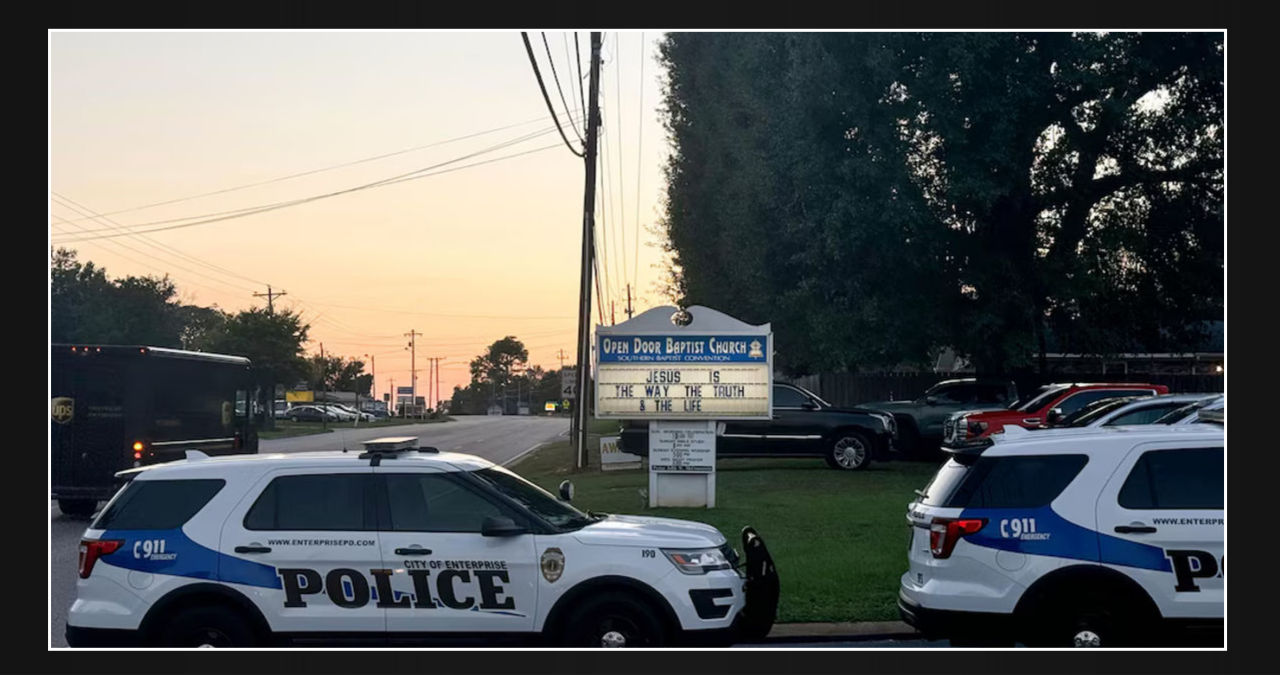Sarah Jacques faced a challenging transition from the bustling city of Port-au-Prince, Haiti, to a small city in Alabama located on the southernmost tip of the Appalachian mountain range.
Over the span of a year, 22-year-old Jacques gradually grew accustomed to the tranquility and established a sense of belonging. She successfully landed a job at a car seat manufacturing plant, discovered a Creole-language church, and began to value the comfort and safety that life in Albertville offered, especially in contrast to the political unrest and violence that had plagued her homeland.
Lately, Republican presidential nominee Donald Trump and his running mate have started spreading false information about Haitian migrants in Springfield, Ohio. They claim that these migrants are causing crime and even “eating pets.” Jacques, however, is facing new and unexpected challenges as a result of these claims.
Jacques expressed his observations about the change in people’s behavior towards him since he arrived. He mentioned that initially, people would greet and engage with him, but now their attitude has shifted. They seem distant, quiet, and even fearful in their interactions with him.
In the midst of this increasing tension, a group of local religious leaders, law enforcement officials, and residents in Alabama recognizes the repercussions witnessed in Springfield as a valuable lesson. They have been actively working together to facilitate the integration of the Haitian community residing in small cities across the state.
As political unrest and violence escalate in Haiti, Haitian migrants have eagerly embraced a program initiated by President Joe Biden in 2023. This program enables the United States to welcome up to 30,000 individuals each month from Cuba, Haiti, Nicaragua, and Venezuela for a duration of two years while providing them with work authorization. Recently, the Biden administration revealed that this program could potentially allow around 300,000 Haitians to stay in the United States until at least February 2026.
According to a spokesperson from Albertville’s school system, there has been a significant increase in the number of students learning English as a second language. In the previous school year, 34% of the district’s 5,800 students were enrolled in ESL programs, which is twice the percentage compared to 2017 when only 17% of students were in similar programs.
According to an email received by The Associated Press, the representatives of the poultry plant confirmed that all of their employees possess legal authorization to work in the United States.
The public meeting served as the climax of the commotion, as residents voiced their concerns and sought clarification regarding the federal program enabling Haitians to work legally in Alabama. However, amidst the discussions, some individuals advocated for landlords to cease providing housing to Haitians, making disparaging remarks about their supposed odor, as captured on audio recordings.
These sentiments resonated with Unique Dunson, a 27-year-old lifelong resident of Albertville and passionate community activist.
According to Dunson, Albertville consistently faces issues whenever there is an increase in the non-white population.
Dunson operates a community store that provides free supplies to the locals. In response to the escalating tensions nationwide, she decided to display several billboards throughout the town. These billboards, written in English, Spanish, and Creole, warmly greet the community and express, “Welcome neighbor, we’re glad you came.”
Dunston expressed that the billboards serve as a means to counteract the belief that migrants are not welcome.
When Pastor John Pierre-Charles arrived in Albertville in 2006, he stated that he was the only Haitian in the area, besides his own family members.
In all his time in Albertville, Pierre-Charles characterizes the recent months as the most challenging period for the Haitian community.
“I can sense a lot of fear among the people in Albertville at the moment. They are uncertain about what the future holds,” Pierre-Charles expressed. “There is a group that fears they might be forced to return to Haiti. On the other hand, there are individuals who are anxious about how others will treat them.”
After the initial public meetings in August, Pierre-Charles took action by sending a letter to city leadership. In the letter, he emphasized the need for additional resources in housing and food to support the growing community. His goal was to ensure that the community could safely adapt, both economically and culturally.
Pierre-Charles expressed his desire to serve as a bridge between different groups of people.
He doesn’t work alone.
In September, Hanson, a Trump supporter and skilled electrical contractor, collaborated with Pierre-Charles and other influential leaders from the Haitian community to establish a nonprofit organization. Their main objective was to provide enhanced housing options and English language classes to cater to the increasing need in the community.
Hanson believes that there is an opportunity to learn from the situation in Springfield and prevent a similar outcome in their own city. Instead of standing by and watching the animosity grow, they propose taking action to foster productivity and open communication among all individuals.
Public meetings across the state have seen an increase in similar debates, even in areas where Haitian residents make up less than 0.5% of the total population.
Videos from various public meetings in Sylacauga depict residents expressing concerns about the alleged increase in Haitian migrants and questioning its impact. According to officials, the town, located southeast of Birmingham and home to approximately 12,000 people, currently has only 60 Haitian migrants.
In September, the parking lot of Open Door Baptist Church in Enterprise was filled with cars as people gathered for an event that aimed to address the impact of the growing Haitian population on the city.
James Wright, the chief of the Ma-Chis Lower Creek Indian Tribe, expressed understanding for the reasons behind Haitians fleeing their home country. However, he also expressed concerns about the potential impact of the migrants on the local “political culture” and “community values” in Enterprise.
Some participants expressed similar concerns and spread incorrect information about Haitian migrants, labeling them as “lawless” and “dangerous.”
However, there were individuals who arrived with the intention of alleviating the growing concerns surrounding the migrant community.
Enterprise Police Chief Michael Moore shared statistics from his department indicating that there has been no significant increase in crimes as the Haitian population has grown.
“I understand that my words may not resonate with everyone due to their personal perspectives,” Moore acknowledged. “However, it is important to acknowledge that these statements are based on factual information.”







Leave a Reply